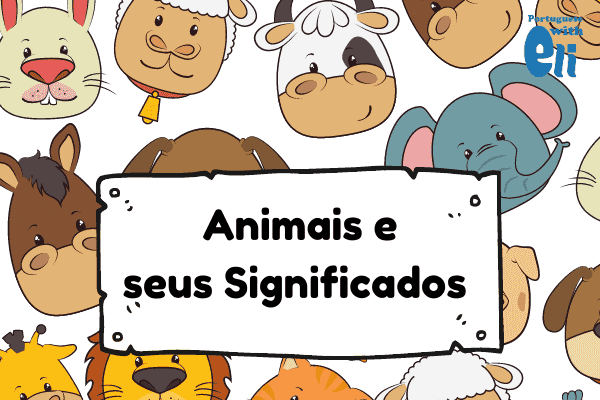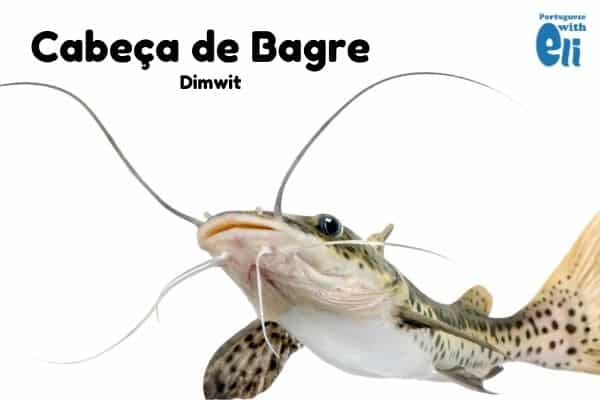BEWARE: Animals in Portuguese May have Sexual Innuendos

Just like soccer, animals in Portuguese play an important role in the language.
And it’s also part of our everyday life — if you don’t have a pet someone you know does.
Wouldn’t it be great to be able to talk about those little animals in Portuguese without faltering? I mean, if you don’t know what they’re called in Portuguese in the first place, how would you talk about them?
But that’s not all.
Some strange meanings hide behind those seemingly innocuous words.
For example, did you know that in Portuguese “tree frog” has a sexual connotation?
(And it seems everything in Portuguese has some sexual innuendo.)
For that and for more, read on.
House Pets, Hidden Dangers — The Strange Meanings of Animals in Portuguese.
If you want tables, you’ll have tables. But not now.
For now we have naming of animals in the house.
Cachorro. Dog.
In Portuguese it doesn’t matter whether it’s a dog, a pup… Everything is dog.
But let’s say you get to Adria’s house and find she has a new doggy, a very small one.
You would say, “Oi, cachorrinho.”
The INHO ending adds an emotional and affectionate undertone to the word. It might be a big dog, a small dog… with this word it would always be “baby dog”.
What if I’m talking about a pup?
You would say,
- Filhote de cachorro. The baby of a dog.
People say that dogs are man’s best friend. A popular Brazilian composer [YouTube video, PT] used to say that whiskey was a bottled dog — I disagree… In my opinion, it should be vodka.
But whatever the opinion you might have, don’t call other people dog in Brazil.
If use the word dog to refer to a man, you’re saying that he’s either a m**********r or a player, a womanizer.
The female dog carries the same negative connotations that you find in English.
- Aquele homem é um cachorro. That man is a m****.
- Sua cachorra! You bitch!
And because of that, some Brazilians steer away from the word “cachorra” and prefer “cadela”. They think cachorra might sound impolite.
Humbug.
You can use either one.
In my teens, I used to listen to the following song. In it, the man says “só as cachorras” referring to women, and for a period women took that word and flipped it – it was now a sign of empowerment. But only when used by women, and only in certain contexts.
Men also use the augmentative form of the word masculine dog — masculine dog big — when praising each other.
- E aí, cachorrão! Hey you big dog!
This habit is not common among women.
Gato. Cat.
The common house cat is gato. And female cat is the gata.
The negative connotations of the word cat in English don’t exist in Portuguese. It’s quite the opposite.
If you call someone a cat — men and women alike — it means you find this person hot and attractive.
Ele é o maior gatinho. He’s very hottie.
- Minha namorada é a maior gata. My girlfriend is a real hottie.
(o maior, a maior here means “very, really”; kind of superlative)
And you can see that in use in the video below. Around thirty-nine seconds into the video the woman says to the reporter, “by the way you are very hot” – aliás, você é um gato.
That has since become a popular meme.
Galinha. Chicken.
The common connotation of cowardice isn’t common in Portuguese when in association with chicken.
If you call a woman a chicken you believe that that woman is promiscuous.
Not nice. Especially because of the sexism of the next usage.
- Fiquei sabendo que o Thiago é o maior galinha. I learned that Jack is so promiscuous.
- Você ‘´tá confundindo as ideias. Não sou nenhuma galinha para você ficar me tratando assim. You’re mixing things up. I am no slot for you to keep treating me like that.
And the “next usage” I mentioned is this:
The male chicken — the cock — represents courage, bravery, but it’s never used in isolation. It’s always in the slightly derogatory phrase, singing as a cock.
You know when you have been working your ass off to make something go right, then someone shows up from nowhere — usually a quite bossy colleague — telling you what to do?
That means your colleague “está querendo cantar de galo“. He wants to show he is the man, the boss, when this showing off isn’t welcome at all.
- O João foi querer cantar de galo logo no dia que sua esposa estava tendo um ataque enxaqueca. Ela só não o chamou de santo.
John wanted to be the boss on the exact day his wife had a bout of migraine. She cursed the hell out of him.
Peixe. Fish.
Besides the somewhat obvious comparison to a person’s face (hence “cara de peixe” in Portuguese), peixe is also a common expression a certain kind of man uses when talking to his fellows.
(this man should be older than 35, usually, and have a personality we call “tiozão”, or uncle.)
And it is so because a fish lives in someone’s fishbowl — or fish tank. And because of this relationship, um peixe is someone who is the protégé of someone else.
- Fala, meu peixe. Como estão as coisas? Howdy, my fish. How are things going?
- O João aqui é meu peixe. Respeite o rapaz. John here is my fish. You had better respect him.

And I don’t know why — perhaps because of its silly expression — but o bagre (catfish in Portuguese) as part of the expression head of catfish. And we use it when we want to insult someone calling him or her a dimwit.
- Não sei por que confio tanto que esse cabeça de bagre vai conseguir fazer alguma coisa certa. I don’t know why a trust so much that this dimwit is going to be able to do something right.
And if you’re in the marketplace, you need to vender seu peixe, or “sell your fish” and self-promote.
Cavalo. Horse.
Not a house pet, I know… but —
The horse in Portuguese is associated with that kind of person who can never be kind. You ask her a question and she doesn’t answer it, strikes back at you, and is proud of it.
And this association of horse and that kind of person is so strong that an ugly reply or a harsh comeback is called “um coice”, a horsekick.
Fiz uma pergunta simples e levei um coice. I asked a simple question and got a horsekick as a reply.
Especially in the Northeastern part of the country — more precisely, in my homestate, Ceará — we use the word égua, mare, to call a woman worthless.
It’s the same use that Brazilians have for “vaca“, or cow.
And that’s also a substitute for S.O.B.
- Seu filho de uma égua! You son of a mare!
And with the same word we have an expression that we use when we are surprised, unhappy, exasperated… it’s a Swiss-knife, actually.
- Arre égua! Oh s***!
I can’t offer you a translation, but you can hear it a lot in forrós like this [YouTube clip, PT] in the first 30 seconds into the song.
Everyone in Brazil will understand that expression immediately, but only people from my state will use that naturally.
“Is it Only my Impression, or are People Talking about Sex All the Time?”
Well, people are.
Eles só pensam naquilo.
And in Portuguese, everything can get a sexual connotation.
From combs (in the famous song, “Um pente é um pente”) to parakeets.
We use the following animals to talk about the female genitalia:
- Periquita (female parakeet)
- Xana (female cat, not really used anymore to mean its original sense)
- Passarinha (“birdie”)
- Perereca (tree frog)
- Rata (female rat)
- Ratinha (variation of “rata”)
And the following ones are used to talk about the male genitalia:
- Pinto (chick)
- Cobra (snake)
- Ganso (goose)
- Peru (turkey)
So, beware.
And there are songs that take advantage of this double-meaning, like this one.
Did You Mention “Tables”?
And as I said I was going to bring you some tables like a normal teacher would do.
However, you’ll see this is not an exhaustive list of all animals that exist in the world.
(What do you think I am, Noah?)
Besides, you can always use Google images to find the proper word to describe the animal you want or you can resort to a good online dictionary.
What I’m giving you here are some pointers that will help you create an awareness to the idiosyncrasies of the words for animals in Portuguese.
Animals in Portuguese that have regular masculine and feminine forms.
| Masculine | Feminine | English |
|---|---|---|
| Cachorro | Cadela, cachorra | Dog / bitch |
| Gato | Gata | Cat |
| Porco | Porca | Pig |
| Sapo | Sapa | Toad |
Animals in Portuguese that have irregular feminine forms.
| Masculine | Feminine | English |
|---|---|---|
| Leão | Leoa | Lion / lioness |
| Boi | Vaca | Ox / Cow |
| Elefante | Elefanta | Elephant |
| Cavalo | Égua | Horse / Mare |
Animals that only have the masculine grammatical gender and form their feminine form by slapping “female” on it.
| Masculine | Feminine | English |
|---|---|---|
| Pinguim fêmea | Pinguim fêmea | penguin |
| Rã macho | Rã fêmea | Common frog |
| Perereca 🐸 macho | Perereca fêmea | Tree frog |
And that’s it.
Those are the most common animals that we have in Portuguese.
They have such a quirky personality that we include them in many of the idioms that we have in Portuguese. You can check those here.
And if you want to practice a little bit, write down the comments below — if you were an animal, what animal would you be and why?
Answers in Portuguese earn an extra cookie.

Understand more of what you hear in Portuguese — grab now your complimentary learning guide with more in a podcast episode than you’d have in five lessons. Learn more.




Please make clear at the start that all this is BRAZILIAN Portuguese.
Obrigado.
Sou brasileiro e em nenhum momento isso fica escondido. É português brasileiro porque sou brasileiro, mas os visitantes deste site sabem olhar esta fonte. De nada.
pinto y porca